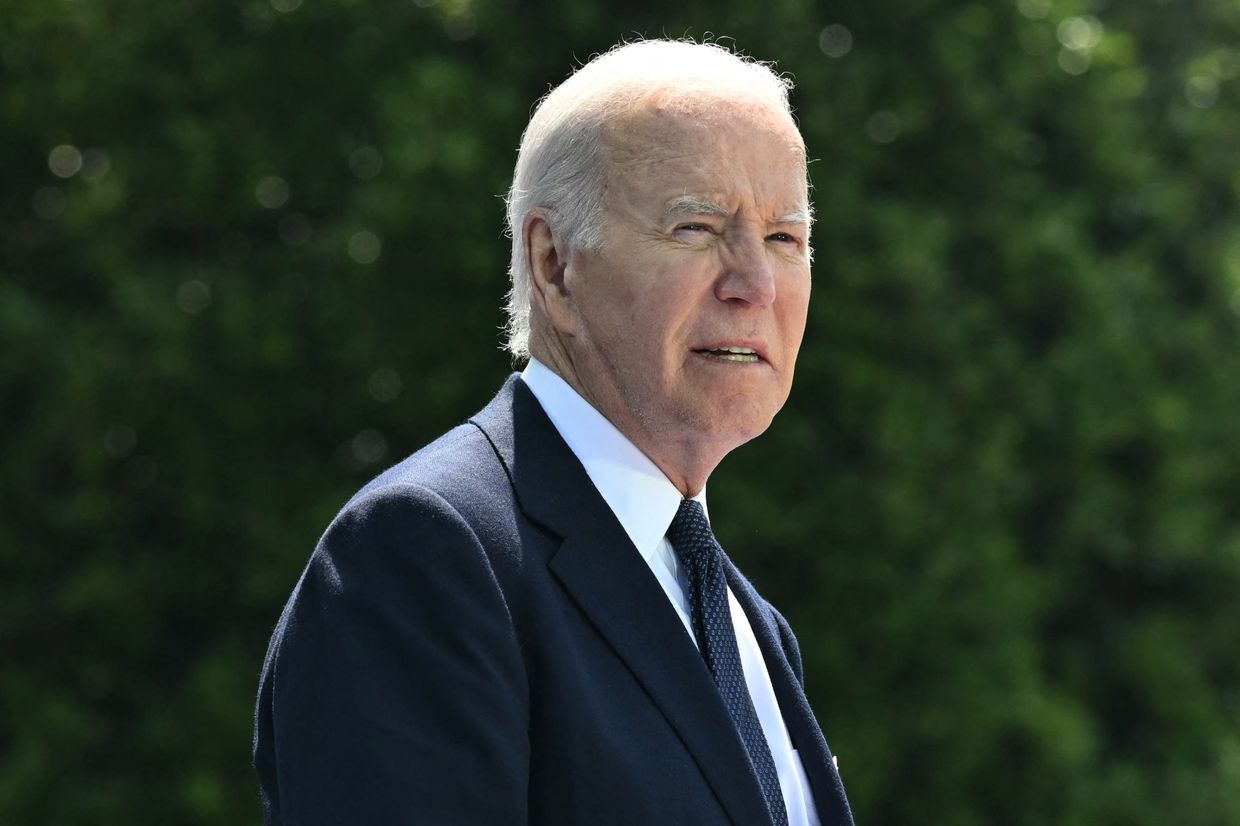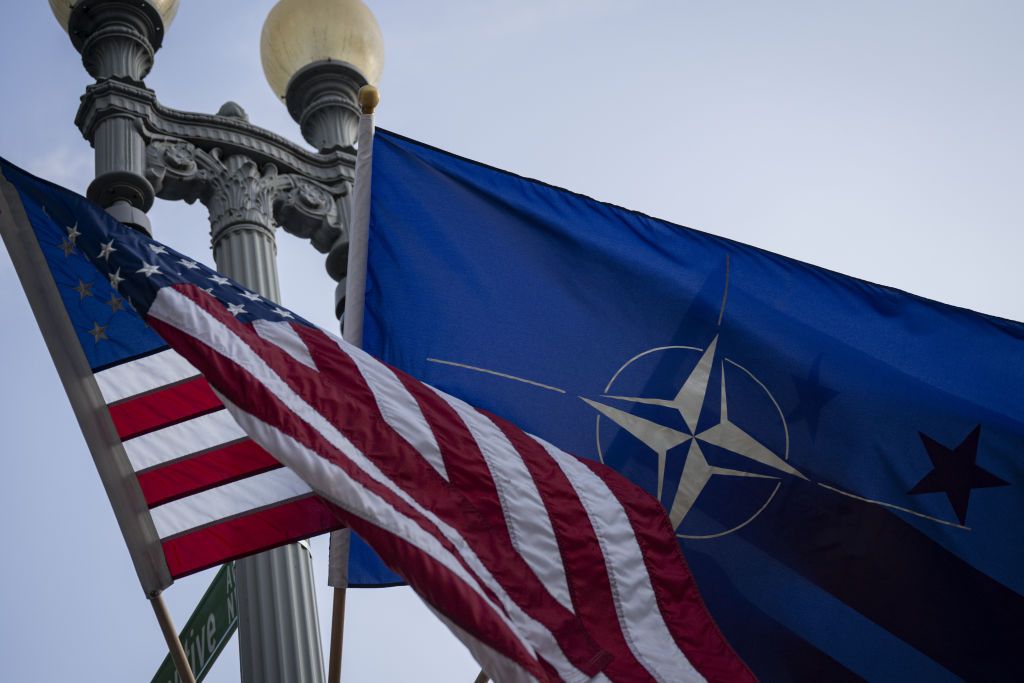Zelensky calls NATO Summit 'success,' but experts warn of green light for Russian aggression
Support independent journalism in Ukraine. Join us in this fight.
Become a member Support us just onceWASHINGTON, D.C. -- This year's NATO summit ended better than last year's, but with no firm invitation to enter the alliance and Ukraine's needs on the battlefield mounting, some observers believe the lack of commitment gives Russia the green light to carry on with its war. While Ukraine didn't get the firm commitment it wanted to join NATO at the alliance's summit this year, the 32 allied countries did declare Ukraine's path to membership "irreversible" in a move largely seen as an improvement from last year's summit in Vilnius, Lithuania. "We welcome the concrete progress Ukraine has made since the Vilnius Summit," NATO's official declaration reads, "on its required democratic, economic, and security reforms."
"As Ukraine continues this vital work, we will continue to support it on its irreversible path to full Euro-Atlantic integration, including NATO membership." If the country didn't get the invitation it wanted, Ukraine did receive more air defense systems, £43 billion in funding, a NATO representative in Kyiv, and new bilateral security agreements during the Alliance's 75th-anniversary celebration. But it is calling for more, as an end to Russia's war is nowhere near in sight and the specter of another Donald Trump presidency looms.
President Volodymyr Zelensky characterized the summit as a "success" for Ukraine. "We are very close to our goal. It seems to me that the next step will be an invitation (to NATO), and then membership...
Today we see success for all our people, our nation," Zelensky said during a joint press conference with outgoing NATO Secretary General Jens Stoltenberg.
NATO summit ends with 32 countries signing Ukraine Compact "This historic Compact creates a unified and comprehensive security architecture to support Ukraine today and in the future, in war and in peace," a White House press briefing said.

The reaction stands in contrast to last year, when the lack of a clear path to membership left the president and other Ukrainian leaders furious. Zelensky's choice to call the summit a success may have been a way to appease allies who chafed at his reaction after the Vilnius summit last summer.
To avoid repeated disappointment, NATO managed expectations ahead of this year's ceremonial summit, resulting in various bilateral agreements and long-term commitments to protect Ukraine leading up to the summit. The wording around Ukraine's future in NATO, which was continuously referred to as being on a "bridge" toward membership, was at times conflicting. In comments on the summit's final day, Stoltenberg said that "the only way for Ukraine to become a member is that Ukraine prevails as a sovereign independent nation in Europe."
In separate comments, he said the clearest way to make sure Russian aggression stops is to get Ukraine into NATO. For some, the language of "irreversibility" only gives Russia the green light to continue its war against Ukraine. "It was a very good week for NATO, but Ukraine is not in NATO, so it was only a so-so week for Ukraine," said Adrian Karatnycky, the former president of Freedom House, the human rights and democracy advocacy non-profit.
"There was nothing concrete given other than a message to (Russian President Vladimir) Putin that if you want to keep Ukraine out of NATO, just continue the war." To Luke Coffey, a former official in Britain's Defense Ministry and current fellow at the Hudson Institute, "the whole issue with the communique was the language around Ukraine." "At the next summit, they'll need a very large English-language thesaurus because I'm not sure how many ways there are left to say the same thing," he added.
While much frustration and confusion was expressed over "irreversible," Steve Pifer, former U.S. Ambassador to Ukraine, said this language is a success.
Biden announces new aid package for Ukraine at NATO summit This is the eighth package approved by Biden since the end of April when the U.S.
Congress passed a foreign aid bill containing close to £61 billion for Ukraine.

"It's definitely a positive step compared to the Vilnius language," he said, referring to last year's summit when the language fell short of extending Ukraine an invitation, as it did again this year. The alliance instead stated last year that NATO "will be in a position to extend an invitation to Ukraine to join the Alliance when Allies agree and conditions are met." Karatnycky, who is the author of a recently published book on the history of modern Ukraine, said that for Ukraine, NATO isn't so much a military alliance as it is an alliance of military producers and donors for the countries not protected by the charter's Article 5.
The article says that if any member is attacked, each allied country considers it an attack against all members and thus is required to "take the actions it deems necessary to assist the ally attacked." NATO's requirement that member nations spend at least two percent of their GDP on defense was another favored topic of discussion at the summit, with U.S. officials calling for higher spending among European countries. The U.S. spends about 3.5% of its GDP on defense and is joined in surpassing the threshold by Poland, Britain, the Baltic States, and a growing number of others according to NATO numbers from 2023.
Many countries like Norway, the Netherlands, Denmark, and Germany spend around 1.7%. In a meeting of the Baltic States Defense Ministers on July 9 on the sidelines of the NATO Summit, Hanno Pevkur of Estonia, said NATO's requirement to spend 2% of GDP on defense, which was enacted in response to Russia's illegal annexation of Crimea in 2014, is not enough.
Restrictions on US weaponry on Russian territory
One question raised repeatedly over the three-day summit was whether the U.S. would fully lift restrictions on Kyiv's use of American weapons against Russian territory. So far, Washington has only allowed for the use of its weapons on Russian territory located close to Ukraine's northeastern borders near Kharkiv and Sumy oblasts.
U.S. officials repeatedly said they will continue to monitor developments on Ukraine's frontline but for now, the restrictions are to remain in place. Russia's July 8 missile attack on Kyiv's Ohkmadyt Children's Hospital which killed two and injured over 30, led to louder calls to let Ukraine strike deep inside Russia. Officials at the summit made frequent mention of the attack, to minimal avail.
Overall, the attack on Kyiv that day killed 33 people. More than a dozen were killed and over 60 were injured in other cities across Ukraine in similar attacks on July 8. Zelensky referred to the question of why Kyiv isn't allowed to strike the Russian airfield from which the deadly attack was launched as "crazy."
"If we want to win, we need to lift all limitations," Zelensky said. Zelensky stepped outside the confines of the heavily guarded summit to meet members of Congress on Capitol Hill, including the Speaker of the House, Mike Johnson. "I explained that the will of Congress was to allow them the flexibility to use the weapons and assistance that were sent to prosecute the war as they see fit.
So I'm a supporter of that," Speaker Johnson said after meeting with Zelensky.
Opinion: NATO at 75 is whistling past the graveyard Europe is in the midst of the largest war on the continent since NATO was founded in 1949. Russian President Vladimir Putin is attacking Ukraine with conventional forces and engaging in hybrid attacks against NATO itself.
The allies know that if Russia is not defeated in Ukraine, it is highly
